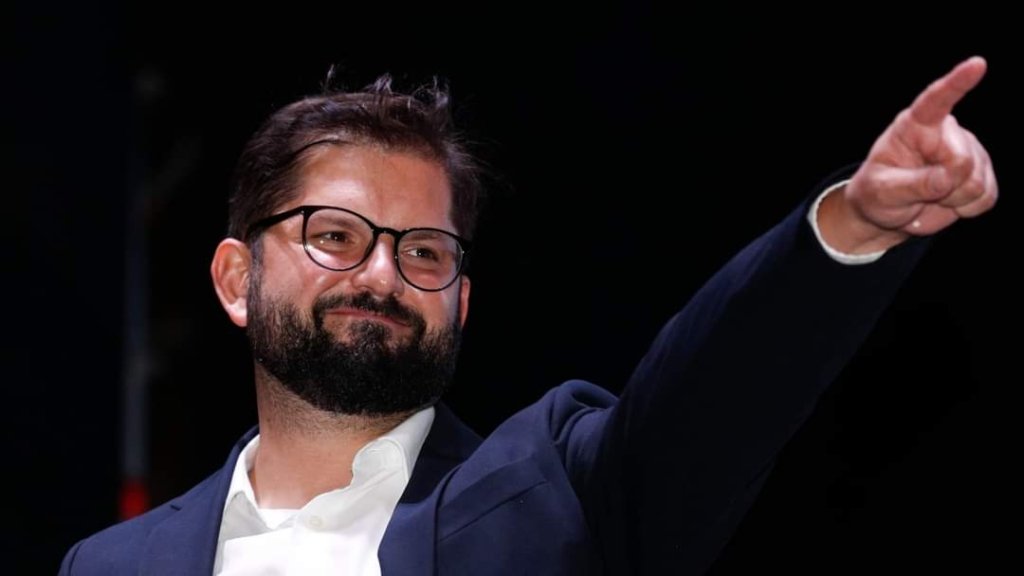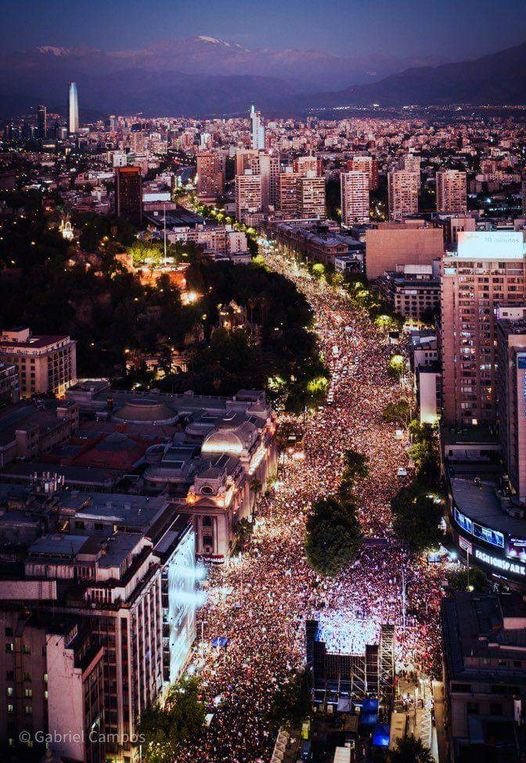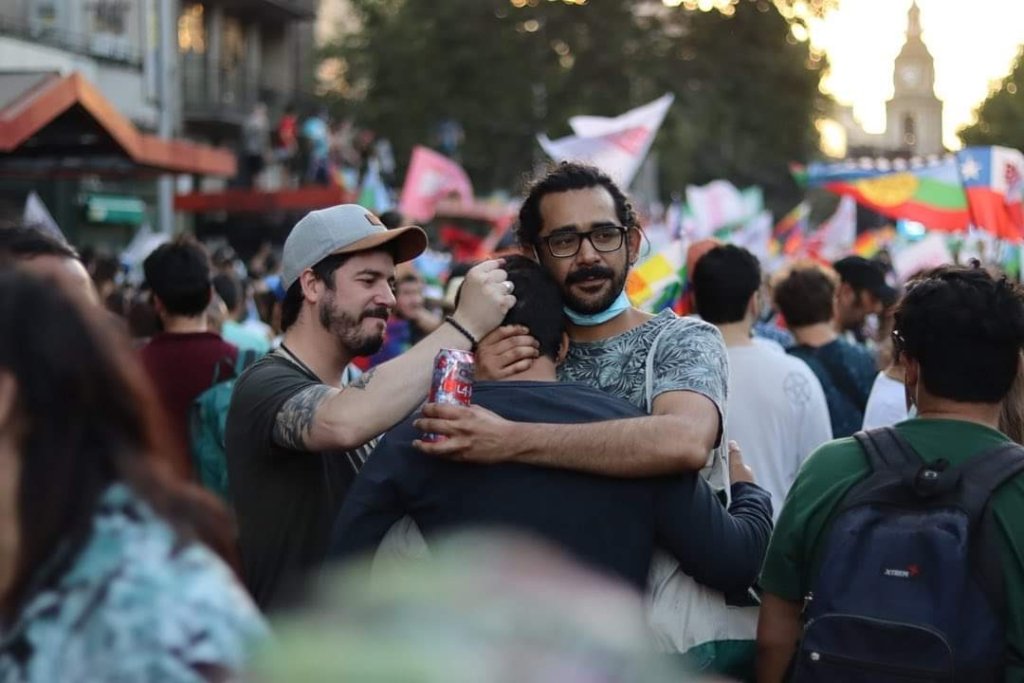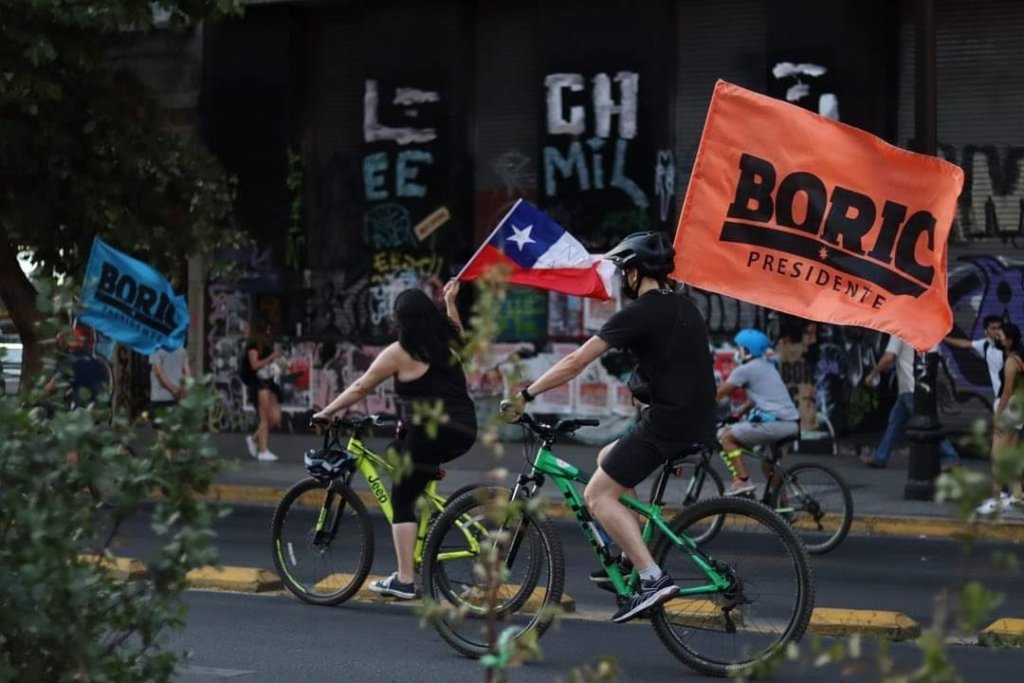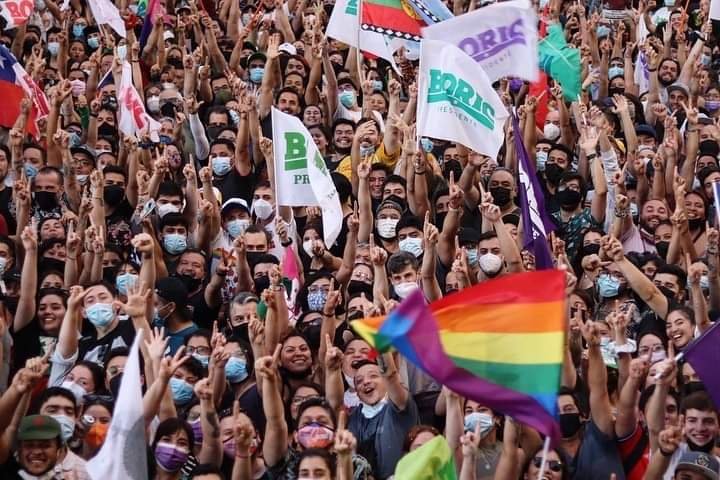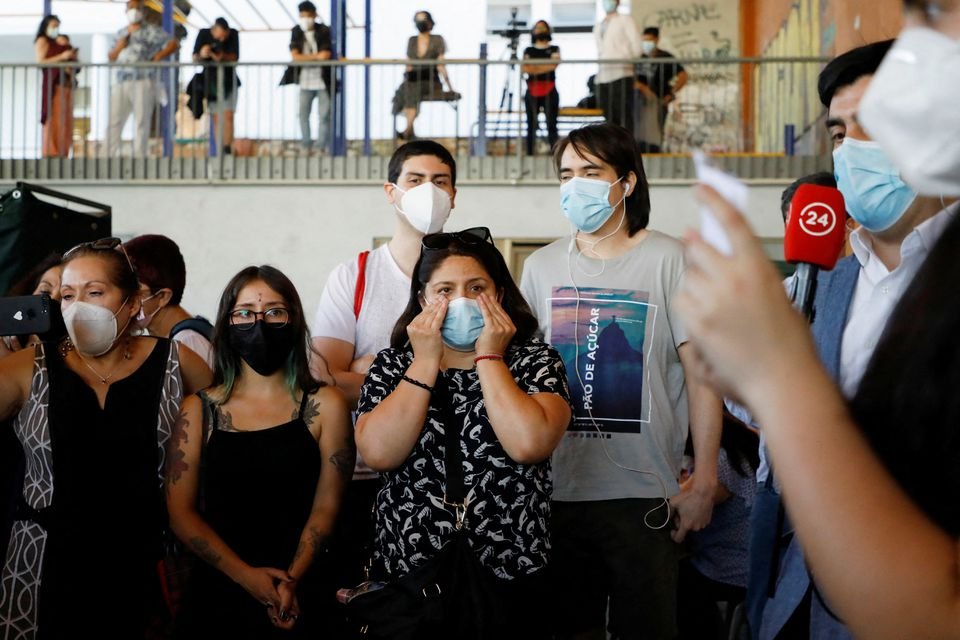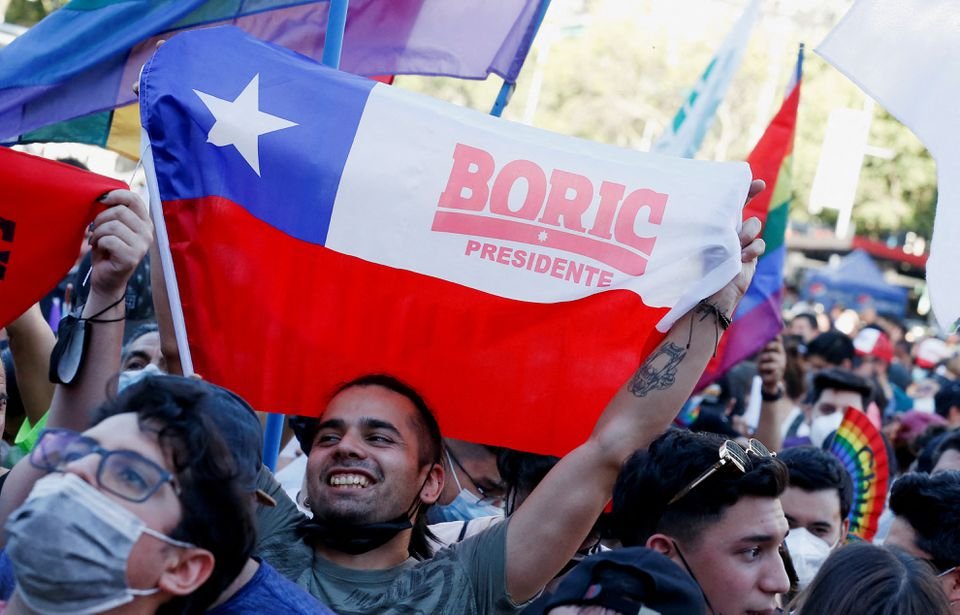The decisive victory reflects Chileans’ revolt against a threadbare welfare system and a society systematically stacked in the favour of the rich
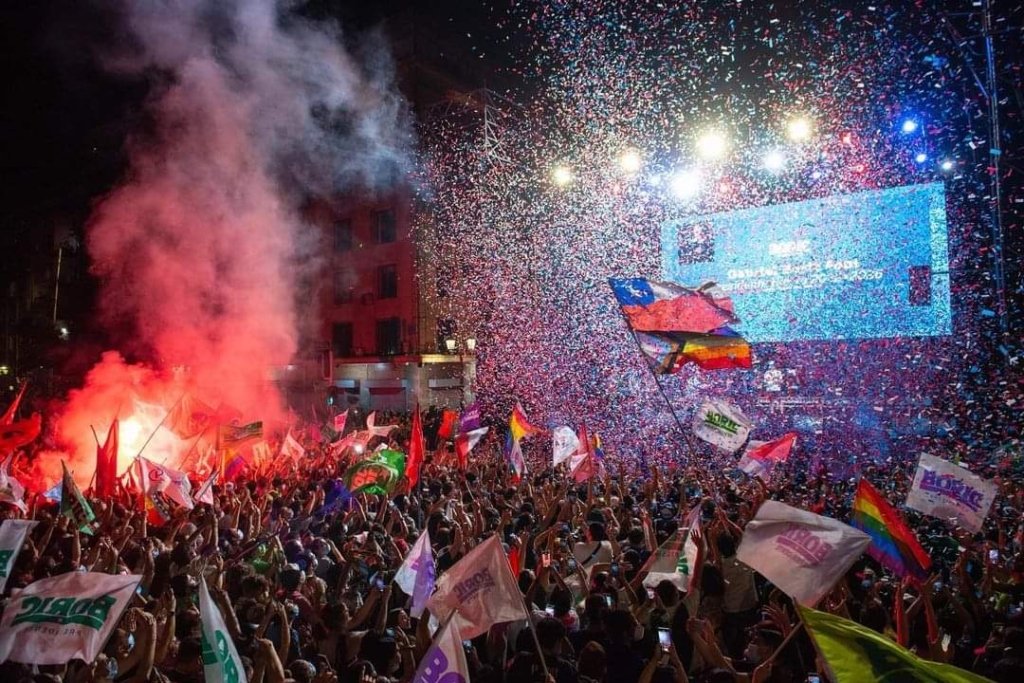
Gabriel Boric’s election as president of Chile on Sunday has put winds in the sails of the resurgent Left in Latin America.
The former 35 years old student leader trounced José Antonio Kast – a Catholic law-and-order candidate nostalgic for the bloody dictatorship of Gen Augusto Pinochet – by a 12 percentage-point margin to become the youngest president in Chilean history.
The hundreds of thousands of Chileans burst into jubilation in the streets of Santiago to celebrate the victory of the student leader in presidential runoff elections.
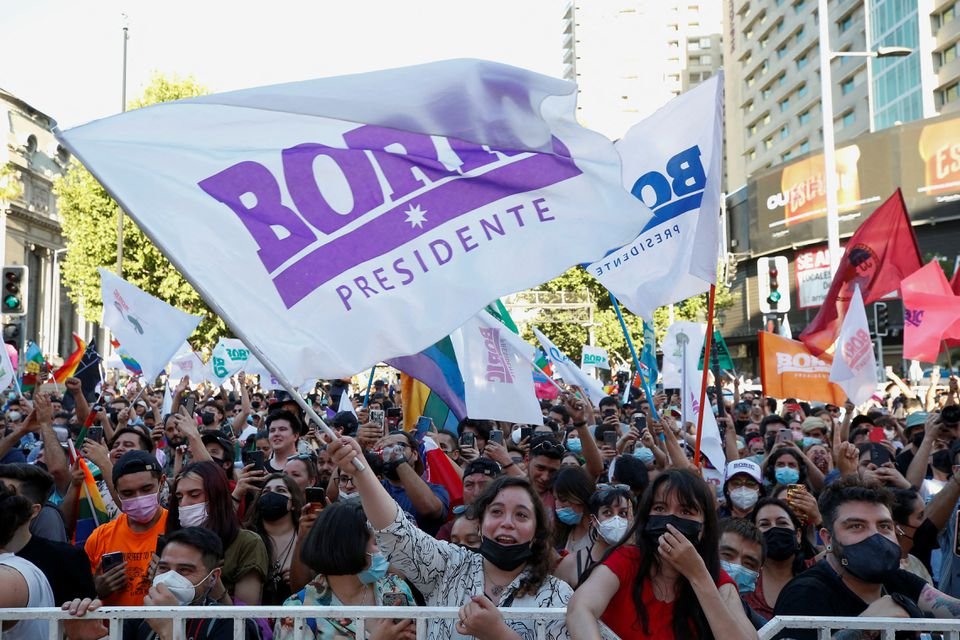
Turnout on Sunday was the highest – at nearly 56 per cent – since voting became voluntary in 2012.
When he takes office on 11 March, Boric will be Chile’s most leftwing leader since the first democratically-elected socialist president Salvador Allende was overthrown in a US-backed coup by General Agusto Pinochet in 1973.
It is also the first from outside the centrist blocs that have swapped the presidential sash since the return of democracy in 1989.
The triumph of the avowed feminist and environmentalist has also been hailed as historic by his progressive counterparts across Latin America, who after nearly a decade in the doldrums have won a string of electoral victories in the past year – and are set to notch up even more in 2022, writes Laurence Blair in Santiago.
“We cannot continue to allow the poor to pay for the inequalities of Chile,” Boric told thousands of cheering supporters in a fiery victory speech which also acknowledged all he needs to do to build alliances.
“We will reach out and build bridges so our citizens can live a better life,” said Boric who was elected to Congress in 2014 after organising rallies for better education.
Seizing the opportunity to increase social services, combat inequality, and strengthen environmental safeguards, he pledged to “bury” the neoliberal economic model left behind by General Augusto Pinochet’s dictatorship from 1973 to 1990.
Nodding towards the years of polarisation and protest leading up to the election, he stressed the need for “social cohesion, refinding ourselves, and sharing common ground”, wrote Kirsten Sehnbruchm, a British Academy global professor at the International Inequalities Institute, the London School of Economics and Political Science.
Earlier in his campaign, he vowed to “bury neoliberalism”, sounding like the same revolutionary politician who led the social protests of 2011 and frustrated many parliamentary colleagues from traditional political parties during his eight years as a congressional deputy, she added.
But his campaign in the runoff was characterised by the measured tones of a budding statesman. Boric demonstrated an extraordinary degree of pragmatism and a genuine ability to reach out to moderate voters and bring Chileans together during the most polarised election the country had experienced since the plebiscite that permitted the country to transition to democracy in 1988, the professor wrote.
Boric was supported by a revolutionary student movement and the Communist Party against Kast who was associated with the dictatorship of General Pinochet, who clearly represented economic and political elites as well as extremely conservative social values.
Kast’s first-round campaign slogan “Atrévete” (roughly translated as “I dare you”) gave the extreme right licence to voice its views without shame. Trumpian tones threaded through his campaign, with threats that Chile would turn into a communist failure like Venezuela if the left won. A video by rightwing YouTuber Sebastián Izquierdo calling on Kast’s supporters to interfere fraudulently with the election went viral and is now being prosecuted by Chile’s election authority.
Ultimately, Kast unleashed the anti-democratic and authoritarian instincts of a right-wing political elite that feels profoundly threatened by the social protests and violence that have stunned Chileans in recent years. But extending this licence to his followers made it extremely difficult for Kast to persuade independent voters from the political centre of his democratic credentials, and his ability to – as his campaign slogan went – “make everything OK” (“Todo va a estar bien”).
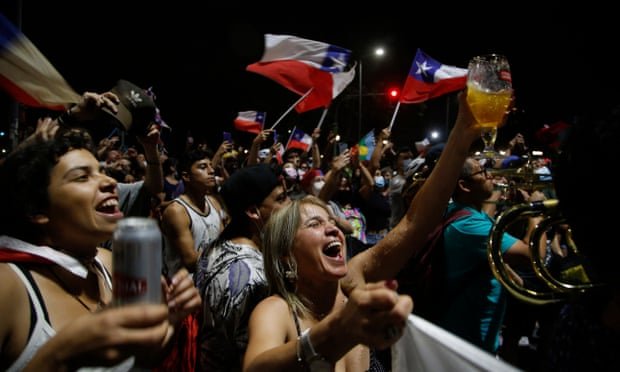
By contrast, the second-round campaign of Boric successfully reached out to independents: his efforts, for example, to bring about a reconciliation between the political programmes of the primary candidates from the centre-left, coordinated by a widely respected and experienced Christian Democrat economist, Guillermo Larraín, signalled his willingness and ability to engage a broad sector of the political spectrum.
It was this effort – as well as the contrast with the authoritarian past of his opponent – that won him the support of prominent national and international economists, including Nobel laureate Joseph Stiglitz and Thomas Piketty. In addition, the impressive efforts by his campaign coordinator, Izkia Siches, and student leaders from his generation, such as Camila Vallejos and Giorgio Jackson, coherently communicated a message of a better future (“Para vivir mejor”) to the Chilean electorate.
Their campaign demonstrated the pragmatic and generational – not ideological – coherence of this new band of politicians in Chile. Their positivity mirrored the democratic message of the 1988 plebiscite, and their margin of victory suggests that many independent voters were won over.
The president-elect captured this energy in his victory speech, which echoed the style of transition president Patricio Aylwin before him. His tone was profoundly conciliatory and aimed to bring Chile back from polarisation and return to the democratic centre.
Aware that he will have to govern with a Congress that is equally split between political factions, Boric emphasised his willingness to engage with all actors across the political spectrum, including his recent opponent, Kast. Knowing that he has no majority in the Senate, he will have to collaborate with a constitutional assembly that is working hard to deepen democracy in Chile. He hit all the right notes: democracy, institutions, social inclusion, women’s rights, environmental sustainability, justice, truth, human rights and dialogue with promises of fiscal responsibility and economic stability.
His actions and words indicate he is promising a rebirth of Chile’s economic, political and social structures. Sceptics (and financial markets) should take heart from the fact that Chile’s first transition from an authoritarian dictatorship to democracy in 1990 provided no guarantees either, but led to one of the most successful periods of development in Latin American history.
Now, Chile is embarking on a second transition, reinventing itself as a social market economy. Its political leaders will be able to build on the institutions, experience and capabilities that the country established during the past 31 years. Boric captured the historic moment perfectly in his victory speech. Now he will have to work out the practicalities of how to deliver.
From his victory stage, he shouted: “Chile was the birthplace of neoliberalism, and it shall also be its grave!
“With Chile embracing socialism along with Peru, Honduras, Bolivia, Venezuela, all eyes are on Colombia now, experiencing the emergence of a powerful, urban Left.
Latin America, the socialist conscience of the world, is taking the lead in the 21st century progressive politics, offering so much to learn from for us in Pakistan and beyond.
Profile
At the age of 14, Gabriel Boric – the great-grandson of a Croatian migrant and an avid reader of Marx and Hegel – formed a city-wide student union in the Chilean city of Punta Arenas, writes Laurence Blair in Santiago.

At 21, and by then a law student, he led a campus sit-in for 44 days in Santiago, Chile’s capital, to oust a senior professor accused of plagiarism and corruption. Two years later, in 2011, he was elected figurehead of a massive student rebellion against profiteering private universities, and in 2013 became a congressman for his remote home region.
After protests over meagre pensions, living costs and police brutality brought millions more onto the streets from October 2019, Boric helped channel public rage into a peaceful outlet: the redrafting of Chile’s dictatorship-era constitution.
Congratulatory messages
Brazil’s former president Luiz Inácio Lula da Silva – who pollsters predict will deal a thumping defeat to another far-right dictatorship-apologist, Jair Bolsonaro, in late 2022 – shared a grinning picture of himself wearing a Boric-branded baseball cap, and said he felt “happy for another victory of a democratic and progressive candidate in our Latin America”.
As Chile went to the polls, Gustavo Petro, a Colombian former guerrilla who is currently leading in polls ahead of presidential elections in May, favourably compared Boric as a “social democrat” against Kast, the son of a card-carrying Nazi.
The Peronist president of neighbouring Argentina, Alberto Fernández, invited Boric to “work together to end inequality in Latin America”.
Luis Arce of Bolivia’s Movement towards Socialism (MAS), which returned to power a year ago with an even greater electoral margin after dislodging a rightwing caretaker government, also praised Boric’s win fulsomely, calling it “the triumph of the Chilean people”.
In Peru, the leftist teacher turned president Pedro Castillo – who narrowly avoided impeachment earlier this December after a chaotic four months in office – tweeted: “Your victory is shared by all Latin American peoples who want to live with liberty, peace, justice and dignity.”
Nicolás Maduro, Venezuela’s authoritarian leftist ruler, praised Chileans “for their resounding victory against fascism”.
Andrés Manuel López Obrador, Mexico’s old-school leftwing president, spoke of his “joy” at Boric’s victory, adding that “the people of Chile had “given an example to Latin America and the world”.
The Cuban leader Miguel Díaz Canel expressed his wish to improve ties with the Chilean public and the incoming government – perhaps a nod to Boric’s remarks in July that his “solidarity” was with Cuban protesters and not the country’s Communist government.
But few Chileans see themselves as locked in a continental battle between left and right, cautioned Rebolledo. Most are fed up with a threadbare welfare system and a society systematically stacked in favour of the rich, concerns to which Boric has spoken eloquently for a decade.
“Boric is part of the path that Chile has been walking for a long time,” he argued.
Fears of Venezuelan-style socialism and economic ruin pushed some voters into Kast’s arms. But conversely, the sobering example of racial hatred and mob violence stirred up by Donald Trump, and the deadly incompetence of Brazilian president Jair Bolsonaro – on whose watch nearly 620,000 Brazilians have died from Covid-19 – may have helped inoculate Chileans against far-right populism.
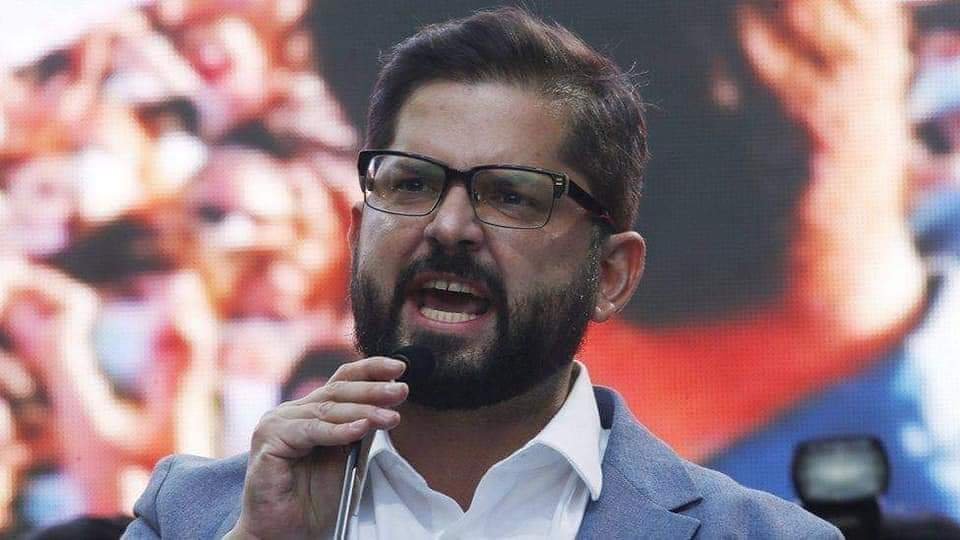
“Chile today demonstrated that we can choose for ourselves,” said Daniela Pardo, a midfielder for a Santiago football club. She had donned a crown of paper flowers to join the jubilant Boric supporters in the emblematic plaza called Dignity Square by anti-inequality protesters. “In the United States and Brazil, far-right governments terrified the public. It was good to learn that lesson.”
In Pakistan, Leftists are jubilant at the victory of Boric. Academic, author and activist Dr Ammar Ali Jan said that the “35 years old socialist has defeated a fascist candidate who had the backing of the US and the Chilean elites”.
The Left is back. Change is inevitable.
“These events teach the Pakistan Left that our job is not merely to resist and criticize. Our real task is to build alternative power and challenge the ruling elites and their political apparatuses ( political parties, militaries, bureaucracies etc),” he suggested.
“We must begin this task of building a genuine alternative in Pakistan that is capable of both fighting in the streets and winning elections. There is no other route to changing the world,” he said.
Bilal Zahoor, a Pakistani publisher, writer and activist said “Fantastic news”. Boric has worked tirelessly for free, quality education, leading protests after protests over the last few years. Additional input and photographs from The Guardian and Reuters

The High Asia Herald is a member of High Asia Media Group — a window to High Asia and Central Asia

